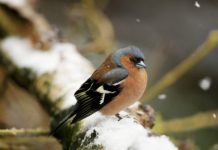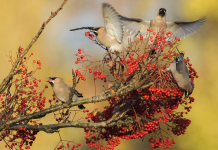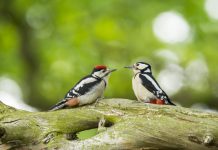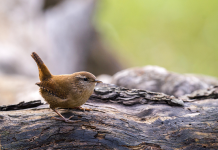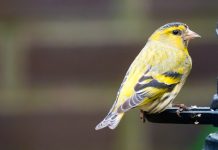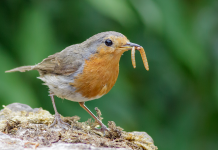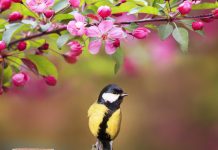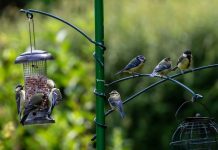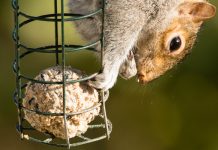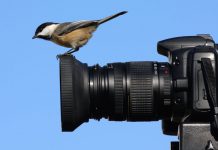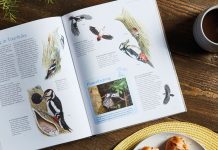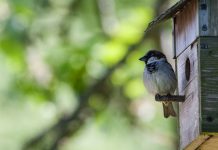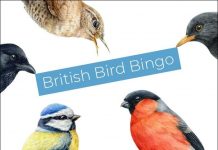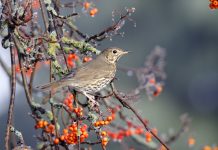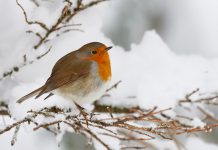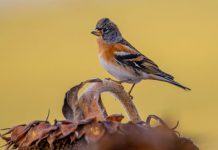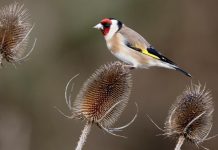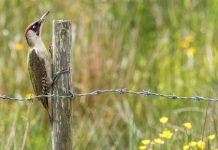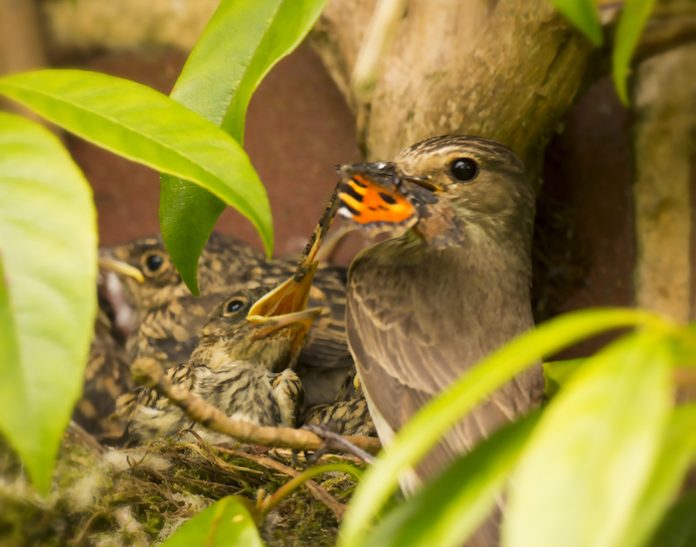When young birds try out their wings for the first time, it’s quite normal for them to fail to achieve lift off. In fact, it often takes a few days before they get the hang of flying, during which time, they’ll be on the ground. While you shouldn’t pick these birds up, you can help to improve their odds of survival with a little bit of food and drink.
Here we turn to some of our favourite bird bloggers and Instagrammers for their expert tips about how and what bird food to offer fledgling birds.
What bird feed is best for fledglings?
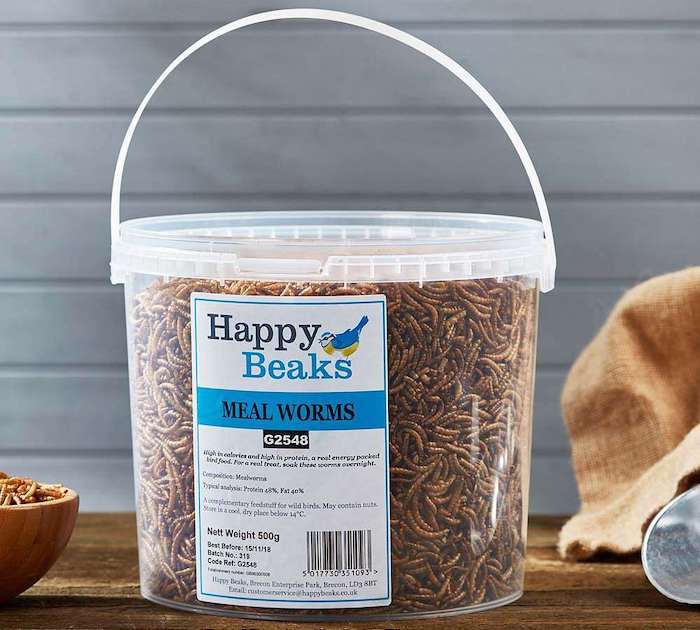
Image: Meal worms tub from Happy Beaks
“My first thoughts on this are that young birds need smaller food while they are growing, and particularly protein, so live mealworms are a fantastic source of food if you’re not squeamish,” says Nick at @nick_de_cent_wildlife. He goes for mini mealworms with bran, which he says keep well in a box in the fridge for a few days.
Other bird-loving social media stars like Young Naturalist: Izzy Fry say they try to keep things as close to birds’ natural feed as possible. Izzy says, “I think the best thing to put out for fledglings is sunflower seeds, waxworms and mealworms.”
Nick Martin at All Things Wildlife agrees that live mealworms or wax worms make great feed for fledgling insect eaters like robins, but if you can’t get them or don’t like the thought of keeping live food in the fridge, dried mealworms also work well. Nick says, “dried mealworms bought from most pet shops and good bird food suppliers are a great protein hit for young or adult birds.”
That said, he also cautions that whole mealworms, “can be a bit large and dry for smaller nestlings so soak them overnight to reduce choking risk and provide moisture.”
To encourage a wide range of fledgling birds and support their hard working parents, Mike Gray at The River Foss Society advocates putting out lots of different foods. He says, “sunflower seeds, soaked sultanas, raisins and currants, mild grated cheese, mealworms, good seed mixtures without peanuts, soft apples and pears cut in half, bananas and grapes are all foods that could give nesting birds a boost.”
Is there anything you shouldn’t feed to fledglings?
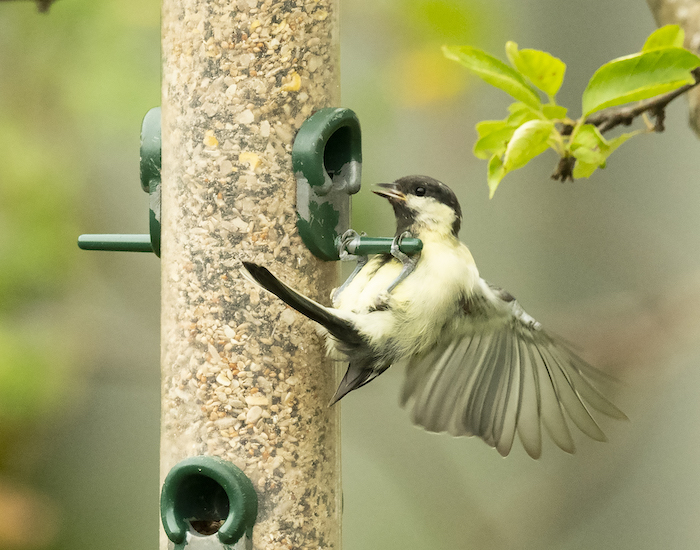
Image: @nick_de_cent_wildlife
Avoid food which could choke young birds, say our bloggers and Instagrammers. That’s the main reason you should steer clear of feeding whole peanuts at this time of year. While bigger birds like pigeons will easily handle whole nuts, smaller garden visitors and particularly nestlings and fledglings may not.
“If you do put them out for the birds, definitely only offer them in a mesh feeder so the birds can’t collect a whole one which might present a choking hazard for the young.” That’s great advice from @nick_de_cent_wildlife, who goes on to emphasise the importance of keeping bird feeders nice and clean and full of fresh food only: “Old, rotten food should not be provided for health reasons.”
Another no-no is bread. As Lucy at Kids of the Wild explains: “Bread isn’t great for birds. It has little nutritional value and can swell in their stomachs so if you must feed it make sure you have soaked it well and put it out wet and soggy. This goes for ducks too – seeds only please!”
Finally, while putting out fat provides much needed calories for birds during cold winter weather, it’s not appropriate food for fledgling birds, so best avoided. Going back to what Young Naturalist: Izzy Fry says – it’s best to go with whatever the birds would be eating anyway.
How else can I help fledglings?
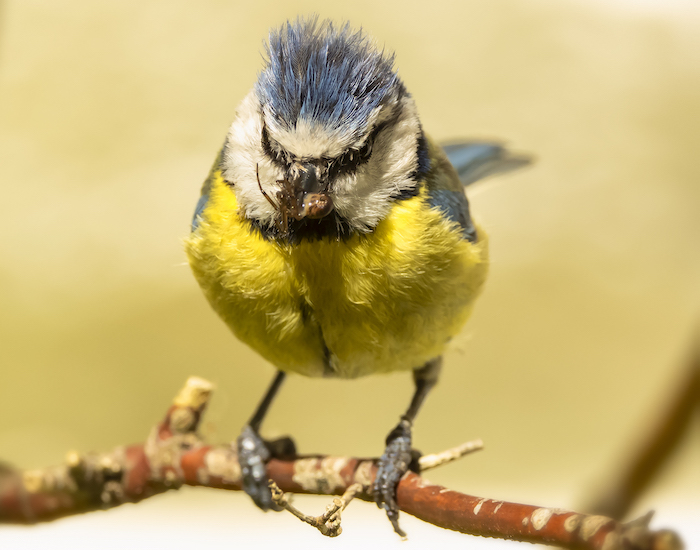
Image: @nick_de_cent_wildlife
Put food out where young birds can find it. @nick_de_cent_wildlife says, “scatter it on the ground in sheltered parts of the garden but do keep an eye out for cats, which love to lie in wait for unsuspecting birds.”
Speaking of cats, Mike Gray at The River Foss Society offers this important advice: “If you do have cats, it’s a very good idea to keep them in overnight when there are fledglings around. Much of the mayhem takes place in the early hours when adult birds are urgently trying to fill hungry young stomachs that have had no food since the previous evening, and can be too busy to see danger lurking.”
In a wider sense, you can help fledglings and all our native garden wildlife by planting thoughtfully. Over at the excellent blog Pumpkin Beth, you’ll find a wealth of advice and information to help you do just that. Beth says: “plant wildlife friendly mixes such as flowering lawns, meadows, and include pollinator friendly plants with single, accessible flowers.”
Beth goes on to caution against the use of chemical sprays, slug pellets, and anything else that doesn’t come courtesy of nature and which damages the garden food chain. Beth says that gardening the natural way pays dividends in terms of the wealth of bird life you’ll see:
“We really need all the tiny creatures at the bottom of the food-chain, as these insects are food for birds and other wildlife. The aphids on my roses are food for Blue Tits. These graceful birds flit about, gently picking aphids off my plants; any aphids that the Blue Tits miss will be hunted by ladybirds and hoverfly larvae.”
Enjoy fledgling season – from a distance
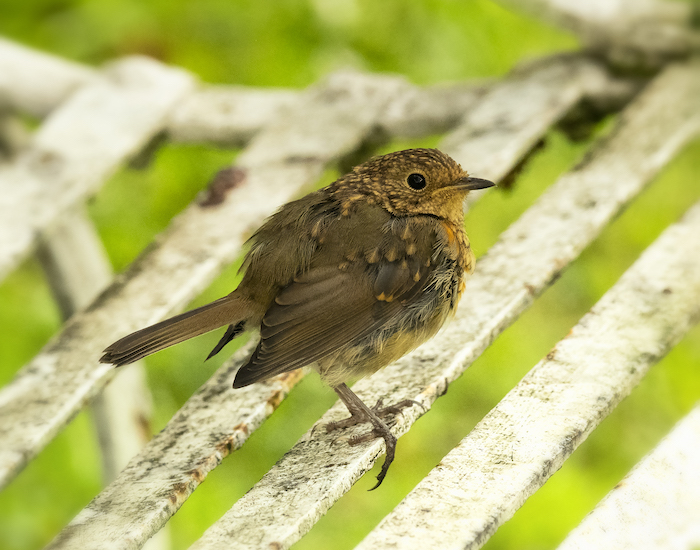
Image: @nick_de_cent_wildlife
“The main thing is to enjoy this exciting time of year,” says @nick_de_cent_wildlife. “Young birds tend to be much tamer and it’s fun to feed them and see them around the garden. Often they look quite different from their parents until they start to grow adult feathers: for example, young robins don’t have a red breast.”
Having said that, he’s keen to emphasise the importance of giving nesting and fledgling birds plenty of space: “Don’t disturb nest sites by getting too close. Incubating birds may abandon their nests if frequently disturbed.”
Fledgling season is a wonderful spectacle and it’s great to be able to help young birds on their way with a little extra of the right kind of food. As Young Naturalist: Izzy Fry says:
“Watch all of the baby birds in your garden, and remember not to disturb them!”
Lead image: @nick_de_cent_wildlife


